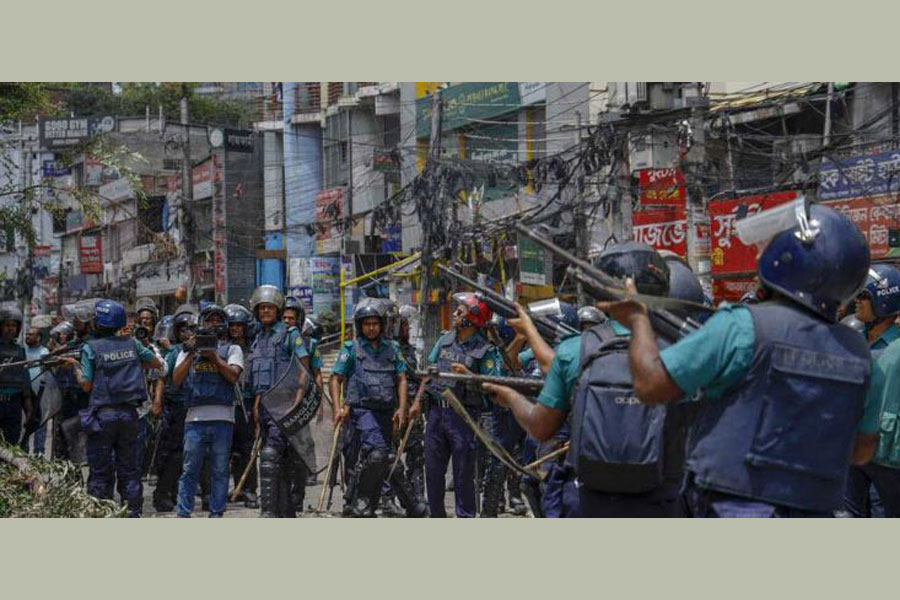
Published :
Updated :

The Police Reform Commission has submitted a report seeking clear limits on the force's power in controlling illegal gatherings and processions, along with guidelines for arrests without warrants and questioning suspects in custody.
In addition, the commission has sought amendments and revisions to 22 laws to reform the police force, reports bdnews24.com.
The commission’s Chairman Safar Raj Hossain presented the report to Chief Advisor Muhammad Yunus on Wednesday.
Safar said over 220,000 officers are tasked with enforcing more than 3,000 laws.
"We couldn’t review every law in detail. But these 22 laws need amendments, revisions, or changes in some areas. We’ve pointed out the areas where we have objections and made recommendations," he added.
On the same day, alongside the police reforms, the commissions on the electoral system, the Anti-Corruption Commission, or ACC, and constitutional reforms also presented their specific recommendations to the interim prime minister in Tejgaon.
Police Reform Commission chief said there are specific regulations for controlling crowds or gatherings.
“We haven’t proposed any new ideas on this, but we’ve recommended following the European model. A detailed guideline has been prepared by the police department for this purpose.”
“In the future, if any incident occurs, no one will lose their life.”
Allegations were raised regarding police's excessive use of force against students and the public to suppress the July-August anti-government protests.
Apologies were also made by police to the families of those who lost their lives during the movement.
Following the fall of the Awami League government, the interim administration came to power and, alongside reforms across different state institutions, established the Police Reform Commission to bring about changes within the force.
The commission also made recommendations regarding arrests without warrants and police interrogation during remand.
Safar Raj said, “There are some directives from the High Court and Supreme Court in these two areas.”
He suggested that if those directives could be implemented, public suffering could be alleviated.
“Excessive force wouldn’t have been used, and arrests would have been carried out more carefully.”
However, he added that a review petition from the government has delayed implementation.
"We’ve requested the government to withdraw the petition, which would make it possible to implement the directives. The law ministry may take action on this."
The commission also recommended establishing a desk for female officers in every police station.
“The desk should be staffed 24/7 with a female sub-inspector and constable to handle the interrogation of female detainees, their transportation to court, and to assist female complainants.”
“It may take some time, but it is a feasible recommendation for implementation,” said the commission chairman.
He added that these recommendations are applicable in immediate, mid-term, and long-term phases.
“For long-term implementation, financial resources or legal amendments may be required.
The commission chief believes that the commission's recommendations regarding police verification for job recruitment can be implemented soon.
Safar said, “It is possible to make the process very easy. Because now there is a national ID card. During recruitment, it was checked whether the relatives or family members were involved in politics.
“We discussed this with the Special Branch [SB] and made recommendations to simplify the process in the future.”
He concluded, “This falls under the responsibility of the home ministry, and they may make changes based on our suggestions. The home advisor is supportive of this.”


 For all latest news, follow The Financial Express Google News channel.
For all latest news, follow The Financial Express Google News channel.